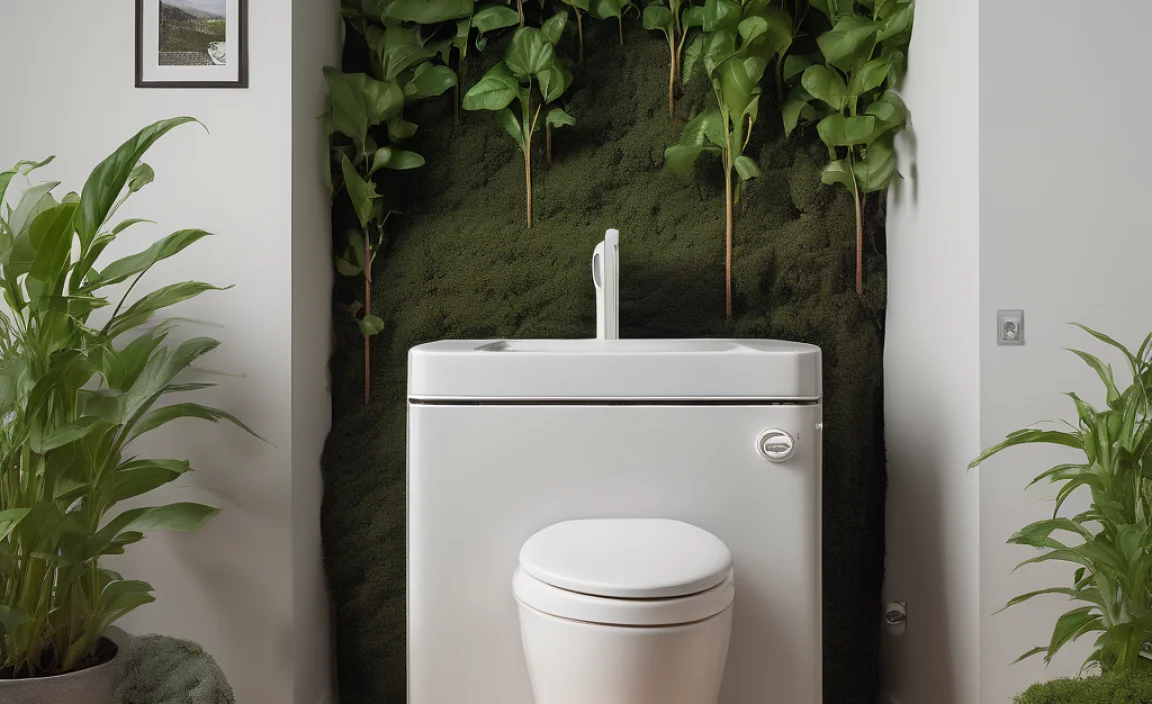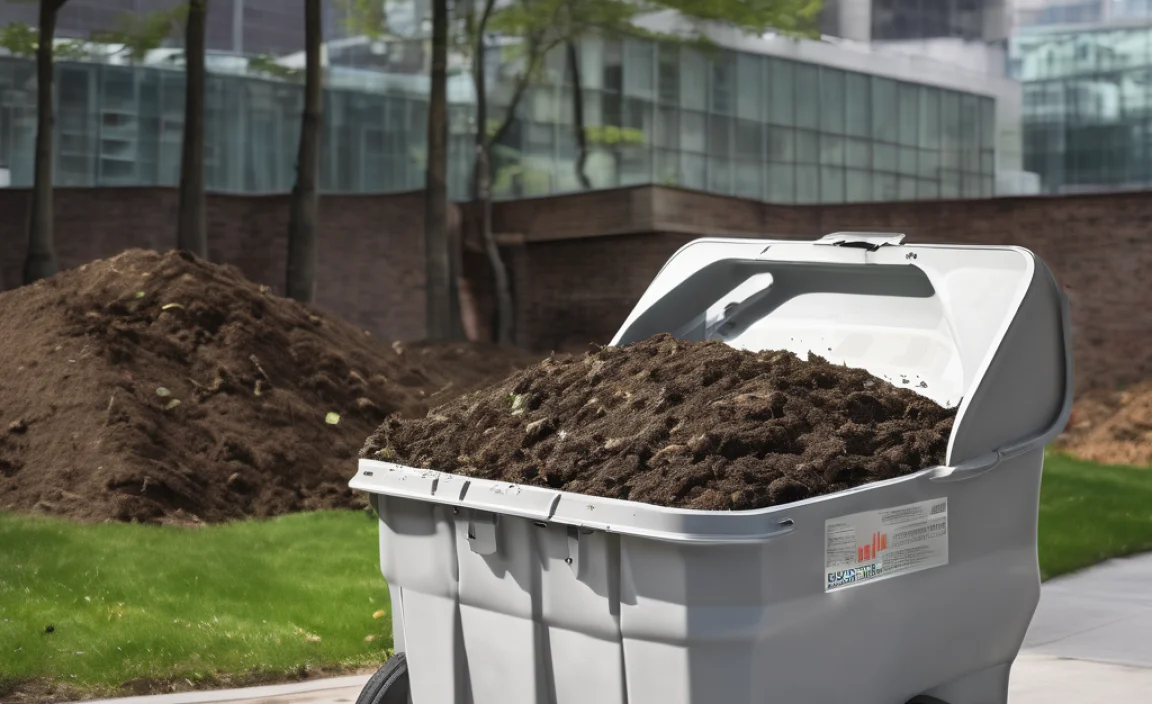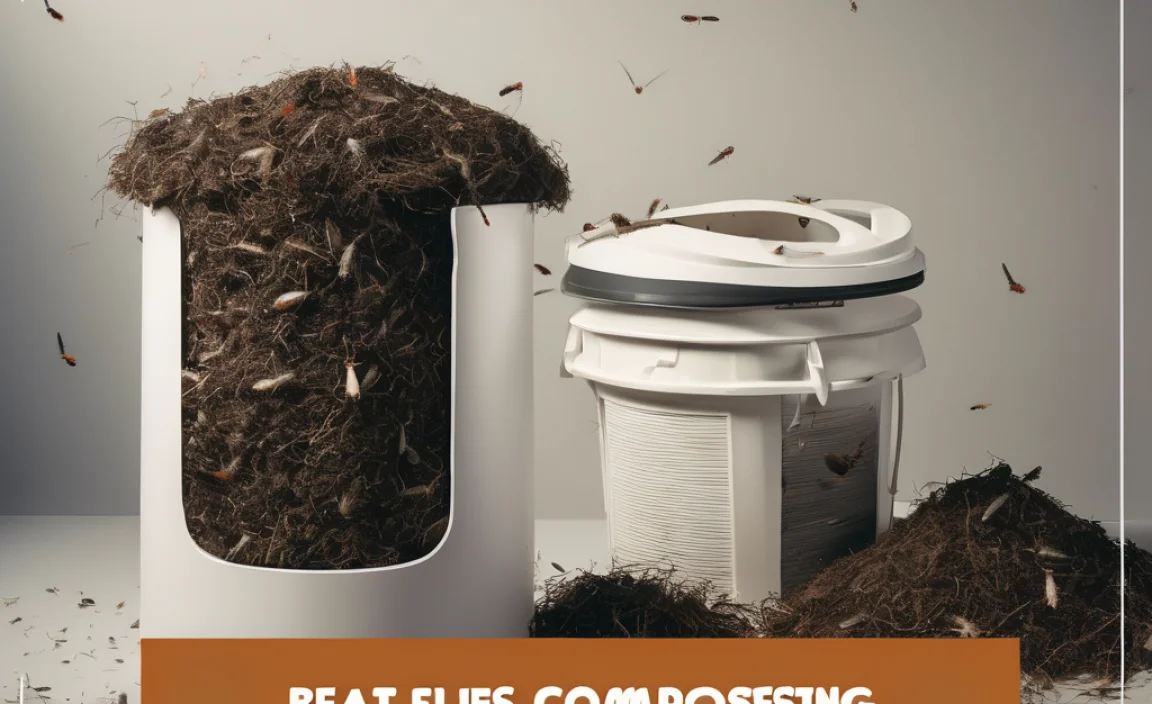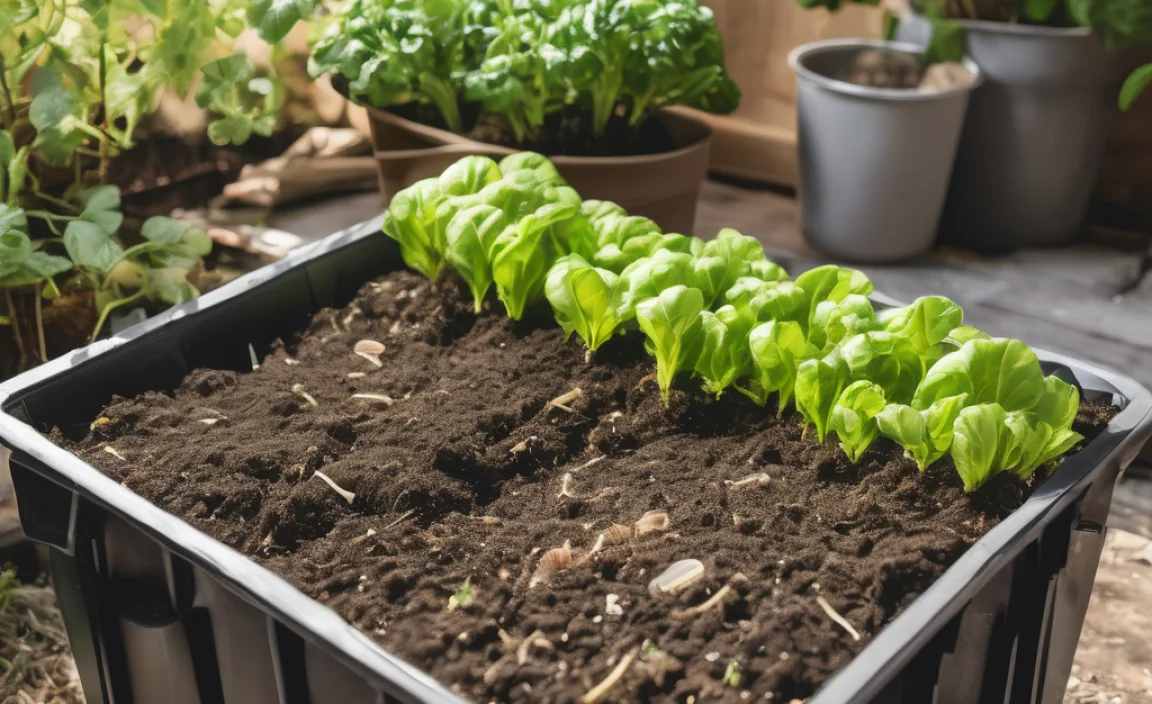Why Composting in Hotels Matters (and Why It’s Tricky)
Hotels create a significant amount of food waste from kitchens, restaurants, and guest rooms. Think leftover meals, plate scrapings, spoiled ingredients, and even those little complimentary toiletries that aren’t quite right. When this organic material goes to landfill, it decomposes without air, producing methane, a potent greenhouse gas. Composting offers a way to break down this waste aerobically, turning it into nutrient-rich soil amendment that can be used in gardens or landscapes.
However, implementing composting in a hotel setting isn’t always straightforward. Space can be an issue, and managing odor and pests are common concerns. Staff training and buy-in are also crucial. But with the right approach, these challenges can be overcome. Let’s dive into the common problems and their practical fixes.
Common Composting Problems for Hotels and Their Solutions
Here are some of the most frequent roadblocks hotels face when trying to compost, along with straightforward ways to tackle them.
Problem 1: Lack of Space for a Composting System
Hotels, especially in urban areas, might not have vast outdoor spaces. This can make people think composting isn’t an option.
Solutions:
- Compact Bins: Invest in well-designed, compact composting bins that are suitable for smaller spaces. Many commercial composting bins are designed to be efficient even when not spread out.
- Vertical Composting: Consider vertical composting systems. These systems allow you to stack compost layers or use vertical space, maximizing output in a minimal footprint.
- Partnering with Off-Site Facilities: If on-site composting is truly impossible, explore partnerships with local commercial composting facilities or farms. They can collect your organic waste and compost it for you. This still diverts waste from landfill, achieving a key sustainability goal. Many municipalities offer these services or can recommend providers. You can often find local waste management authorities through government websites like the U.S. Environmental Protection Agency (EPA), which provides guidance on composting and waste reduction.
- Indoor Composting Systems: For smaller hotels or those with very limited outdoor space, consider advanced indoor composting systems. These are often enclosed, controlled environments that can manage waste efficiently and with minimal odor. Look for systems that use accelerated decomposition methods.
Problem 2: Unpleasant Odors
This is a big one! Nobody wants their guests or staff complaining about bad smells. Odors usually mean something is off in the composting process.
Solutions:
- Balance “Greens” and “Browns”: The key to preventing odor is maintaining the right ratio of nitrogen-rich materials (greens like food scraps, coffee grounds) and carbon-rich materials (browns like dry leaves, shredded paper, cardboard). Aim for roughly a 1:2 to 1:3 ratio of greens to browns by volume. Too many greens can lead to a slimy, smelly mess.
- Aeration is Key: Compost needs oxygen to break down properly. Stagnant, wet compost produces foul odors. Ensure your compost pile or bin is well-aerated. Turn it regularly with a pitchfork or use a tumbler that allows for easy mixing.
- Moisture Control: Compost should be damp like a wrung-out sponge, not soaking wet. If it’s too wet, it will smell. Add more brown materials to absorb excess moisture. Cover the compost pile or bin during heavy rain.
- Bury Food Scraps: When adding fresh food scraps, always cover them with a layer of brown material. This helps to contain odors and deter pests.
- Proper Bin Selection: Enclosed composting bins with good ventilation are excellent for odor control as they trap smells and help regulate the composting environment.
Problem 3: Attracting Pests (Rodents, Flies, etc.)
The thought of vermin can be a major deterrent to starting a composting program. However, with proper management, pests can be kept away.
Solutions:
- Use Secure Bins: Invest in sturdy, rodent-proof compost bins. These are often made of thick plastic or metal and have tight-fitting lids. Ensure there are no large gaps where pests can enter.
- Bury Food Scraps Deeply: Always place new food scraps at the bottom of the compost pile or bin and cover them thoroughly with brown materials. This makes them less accessible to pests.
- Avoid Problematic Items: Some items are more attractive to pests than others. Be cautious with meat scraps, dairy products, and oily foods. While they can be composted in some advanced systems, smaller, simpler hotel setups might be better off avoiding them to minimize pest risks. Check local guidelines for what’s recommended.
- Maintain Proper Conditions: A well-managed compost pile that is aerated and has the right moisture balance is less attractive to pests than a neglected, smelly pile. Pests are drawn to easy, decomposing food sources.
- Regular Waste Removal: Don’t let food waste sit around in the kitchen for too long before it’s added to the compost. Use designated bins for pre-collection and empty them regularly.
Problem 4: Contamination of Compostable Materials
If non-compostable items like plastic packaging, utensils, or non-compostable paper products end up in the compost, it ruins the end product and creates extra work.
Solutions:
- Clear Signage and Education: This is paramount! Place clear, visual signage on all waste and compost bins throughout the hotel. Use pictures to show what can and cannot be composted. Educate staff regularly on proper sorting procedures.
- Designated Collection Points: Set up clear, separate bins for compostable waste, recycling, and landfill waste in key areas like guest rooms, kitchens, and staff areas.
- Staff Training: Conduct regular training sessions for kitchen staff, housekeeping, and management. Make sure everyone understands the composting guidelines and the importance of sorting correctly. Role-playing scenarios can be very effective.
- Audit and Feedback: Occasionally audit the compost bins to identify common contaminants. Use this information to provide targeted feedback and retraining to staff.
- Guest Awareness Campaigns: Consider gentle reminders on in-room literature or menus to encourage guests to sort their waste correctly. Frame it around the hotel’s commitment to sustainability.
Problem 5: Labor and Training Requirements
Getting staff to adopt new waste sorting and composting routines can be challenging and time-consuming.
Solutions:
- Simplify the Process: Make the sorting and collection process as easy as possible. Use color-coded bins and clear labels.
- Invest in Initial Training: Dedicate time and resources to comprehensive initial training for all relevant staff members. Explain the “why” behind composting, not just the “how.”
- Designate “Compost Champions”: Identify and empower individuals within different departments to be “compost champions.” They can help answer questions, monitor bins, and reinforce best practices among their colleagues.
- Regular Refresher Sessions: Don’t let composting knowledge fade. Schedule brief, regular refresher training sessions, perhaps during staff meetings.
- Provide the Right Tools: Ensure staff have the necessary tools to make their jobs easier, such as durable collection carts, gloves, and easy-to-use compost bins.
- Streamlined Collection Routes: Plan efficient routes for collecting compostables from different areas of the hotel to minimize staff time and effort.
Problem 6: Inconsistent Quality of Compost
If the compost produced is lumpy, full of unfinished material, or doesn’t break down properly, it’s not very useful.
Solutions:
- Monitor Temperature: For hot composting methods, monitoring the temperature (ideally between 130-160°F or 55-70°C) is crucial for killing pathogens and weed seeds and ensuring efficient decomposition.
- Particle Size Matters: Chop larger food scraps into smaller pieces. This increases the surface area, allowing microorganisms to work faster.
- Maintain Proper Moisture: As mentioned, too wet or too dry compost will slow decomposition. Regularly check and adjust moisture levels.
- Regular Turning/Aeration: Consistent turning ensures even decomposition, prevents anaerobic pockets, and helps break down larger pieces.
- Extended Curing Time: Allow the compost to “cure” or mature for a period after the active composting phase. This allows it to stabilize and become a rich, humus-like material. This can take several weeks to months.
- Consider Different Composting Methods: If one method isn’t yielding good results, research alternatives like vermicomposting (using worms) or bokashi (fermentation), which might be more suitable for specific hotel waste streams or space limitations.
Choosing the Right Composting System for Your Hotel
The best composting system for your hotel will depend on several factors, including space, budget, volume of organic waste, and available staff resources. Here’s a quick look at some popular options:
| Composting Method | Pros | Cons | Best For |
|---|---|---|---|
| Aerated Static Piles (ASP) | Handles large volumes, relatively fast decomposition, good odor control with proper aeration. Can be contained. | Requires blowers/fans for aeration, initial setup can be more complex and costly, needs a defined space. | Larger hotels with dedicated space and willingness to invest in equipment and training. |
| In-Vessel Composting | Enclosed systems, excellent odor and pest control, faster composting, can be highly contained and aesthetically pleasing. | Higher initial cost, requires specialized equipment, can be limited by batch size or capacity. | Hotels prioritizing aesthetics, odor control, and speed, especially in urban settings or with limited space. |
| Tumbler Composting | Easy to turn/aerate, good for smaller volumes, keeps pests out, can be relatively quick. | Limited capacity, can become heavy and hard to turn when full, may require more frequent addition of materials. | Smaller hotels, restaurants, or specific departments within a larger hotel generating moderate waste. |
| Windrow Composting | Suitable for very large volumes, simple to manage with machinery, relatively low tech. | Requires significant space, intense manual labor or machinery for turning, potential for odor and pest issues if not managed perfectly. | Large resorts or hotel chains with extensive grounds and a high volume of organic waste. |
The Role of Technology in Hotel Composting
Technology is making hotel composting more efficient and accessible. Smarter bins can monitor temperature and moisture, alerting staff when intervention is needed. Some advanced systems use sensors and automated aeration to optimize the composting process, reducing manual labor and improving compost quality. Online platforms and apps can also help track waste diversion rates and provide valuable data for sustainability reporting, which is increasingly important for hotels aiming for eco-certifications or appealing to environmentally conscious travelers.
For instance, companies are developing smart waste bins that can sort automatically or provide real-time data on waste generation. For composting, there are in-vessel systems that can be monitored remotely. These innovations can significantly ease the burden on hotel staff and ensure a more reliable composting outcome.
Making Compost Work for Your Hotel’s Bottom Line and Image
Beyond the environmental benefits, successful composting can positively impact a hotel’s finances and reputation. By reducing the amount of waste sent to landfill, hotels can often lower their waste disposal fees. The compost produced can be used in the hotel’s own landscaping, reducing the need to purchase soil and fertilizers. This can lead to tangible cost savings.
Furthermore, a well-implemented composting program is a powerful marketing tool. Travelers, especially millennials and Gen Z, are increasingly seeking out eco-friendly accommodations. Highlighting your commitment to sustainability, including composting, can attract these guests and enhance your hotel’s brand image. It shows a genuine effort to be a responsible business.
Consider partnering with local community gardens or agricultural programs! They might be happy to receive your high-quality compost. This builds community ties and further enhances your sustainability story. It turns waste into a shared resource.
Conclusion
Composting for hotels presents unique challenges, from managing organic waste in busy environments to preventing odors and pests. However, as we’ve seen, these problems aren’t insurmountable. By understanding the common pitfalls and implementing practical, often simple solutions—like balancing your compostable materials, ensuring good aeration, using secure bins, and focusing on staff education—you can create a successful and beneficial composting program.
Whether you choose an in-vessel system, a tumbler, or partner with a local facility, the effort to divert waste from landfills not only benefits the planet but can also enhance your hotel’s efficiency, cut costs, and significantly boost its green image. So, take these tips, start small if you need to, and build a composting system that works for your hotel, your guests, and your commitment to a more sustainable future. You’ve got this!
Frequently Asked Questions About Composting for Hotels
Q1: What is the absolute most important thing to remember for hotel composting?
A: Balanced inputs! Always aim for a good mix of “greens” (food scraps, coffee grounds) and “browns” (paper, cardboard, dry leaves). This is the secret to avoiding odors and pests and ensuring efficient decomposition.
Q2: How much space do I really need for composting at a hotel?
A: It varies greatly! A simple tumbler might fit in a small corner of a utility area, while a larger, more industrial system might need a dedicated outdoor space. Even a small footprint can be effective with the right system and management.
Q3: Can I compost meat, dairy, and oily foods in a hotel compost system?
A: It’s best to be cautious. While advanced systems can handle these, they can attract pests and cause odors in simpler setups. For a beginner-friendly and problem-free system, it’s often safer to avoid them or use an off-site commercial service that can manage them properly.
Q4: How often should staff be trained on composting?
A: Initial training is crucial, but regular refreshers are key. Aim for at least an annual refresher, or more frequently if you notice contamination issues. Brief, consistent training is more effective than one long session.
Q5: What if my compost pile just isn’t breaking down?
A: Check the basics: Is it too wet? Too dry? Not enough air (turn it more)? Not enough greens (nitrogen)? A combination of factors usually slows decomposition. Adding a bit of water, some brown material, or more frequent turning can help.
Q6: Are there specific types of bins I should look for?
A: Yes! Look for bins that are rodent-proof (tight lids, sturdy construction), well-ventilated to prevent anaerobic conditions, and appropriately sized for the volume of waste you generate. Tumblers are great for ease of turning. Larger hotels might need more robust, industrial bins.
Q7: How do I involve guests in the composting effort without being inconvenient?
A: Keep it simple and visible. Clear signage on bins in rooms and public areas is the easiest way. A small note in the room guide about your hotel’s sustainability efforts can also encourage participation. Focus on making it easy for them.

I am passionate about home engineering. I specialize in designing, installing, and maintaining heating, ventilation, and air conditioning systems. My goal is to help people stay comfortable in their homes all year long.




